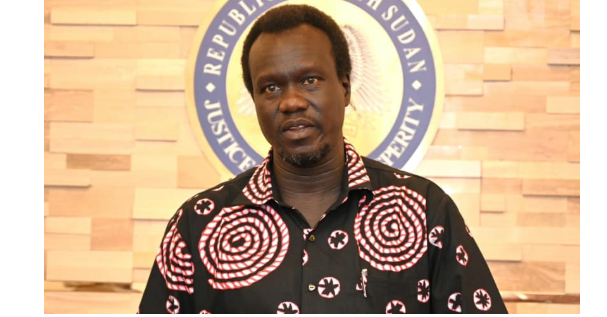The appointment of Dr Akol Paul Kordit as the Secretary General of the Sudan People’s Liberation Movement (SPLM) could not have been timelier. It marks a turning point for a party that has, for years, struggled to balance its liberation legacy with the demands of democratic governance.
At this moment of political uncertainty, Kordit’s rise injects fresh energy, intellectual discipline, and strategic focus into a movement that has long needed both vision and renewal.
SPLM, once a unifying force in South Sudan’s struggle for independence, has in recent years faced internal fatigue, fragmentation, and ideological drift. But Kordit’s appointment signals a new dawn—a reawakening built on organization, youth inclusion, and a return to principled politics. His leadership has the potential to reposition SPLM, not merely as the ruling party, but as a credible electoral force ready to lead the nation into its next chapter.
Kordit is not a political lightweight. His experience in SPLM spans years of service, discipline, and loyalty to the movement’s core ideals. From his days as a youth leader to his rise through national political structures, Kordit has consistently demonstrated clarity of purpose and intellectual depth.
He represents a rare generation of SPLM leaders who understand both the revolutionary spirit that birthed South Sudan and the modern governance challenges it faces. Educated, articulate, and strategically minded, Kordit’s leadership style combines loyalty with innovation, and tradition with transformation.
What sets him apart is his ability to listen, plan, and act with precision—qualities that have become increasingly scarce in South Sudan’s political landscape. He brings to the SPLM Secretariat the calm determination of a strategist and the moral conviction of a reformer.
Under Kordit’s stewardship, SPLM is poised for a period of strategic renewal, built on three main pillars: ideological reawakening, organizational reform, and electoral readiness.
On ideological reawakening, Kordit understands that SPLM must reconnect with its founding values—justice, equality, and service to the people. He is likely to lead a revival of the party’s ideological foundation, bringing back political education, dialogue, and moral integrity as the bedrock of SPLM’s operations. His approach will emphasize unity and the restoration of public trust.
Regarding organizational reform and discipline, it is noteworthy that years of political wrangling have weakened the SPLM’s internal structures. Koordit’s first mission will likely be to reestablish discipline within the ranks—revitalizing the party’s state branches, strengthening its secretariat, and enforcing clear systems of accountability. His methodical leadership style promises to restore coherence and professionalism to the SPLM’s political machinery.
On electoral readiness and modernization, the focus should be on the approaching elections. Kordit’s modern and data-driven approach to politics offers hope. He understands the importance of youth engagement, grassroots mobilization, and digital outreach in shaping electoral outcomes. His leadership could transform SPLM into a competitive, issue-based political movement, capable of winning through ideas, rather than legacy alone.
If given sufficient time and institutional freedom, Kordit could transform SPLM into a modern political powerhouse that reflects the aspirations of all South Sudanese. Under his leadership, one can envision an SPLM that speaks the language of reform, efficiency, and service delivery—an SPLM that unites rather than divides.
Imagine a revitalized movement where political debates replace internal suspicion, and party congresses are once again platforms for ideas rather than conflicts! Under Koordit, SPLM could reclaim its image as a movement of purpose, not just power.
SPLM of the future—under his strategic direction—would be grounded in inclusion, accountability, and national unity. It would nurture the next generation of leaders, rebuild citizens’ trust, and ensure that the party remains the true custodian of South Sudan’s founding vision.
Koordit’s appointment is more than a political promotion—it is a statement of intent. It signals that the SPLM leadership recognizes the urgent need for intellectual renewal and generational balance. South Sudan stands at a crossroads, and SPLM must choose between stagnation and reinvention.
Kordit embodies the spirit of renewal. He represents a measured balance between the liberation past and the democratic future. His leadership offers SPLM not just a chance to reorganize, but to redefine its relationship with the people.
If President Salva Kiir and the senior party leadership grant him the autonomy and institutional support he deserves, Kordit could very well lead SPLM into a historic political rebirth—one that restores the movement’s credibility and ensures a decisive victory in the next national elections. This is not merely an appointment. It is the beginning of the SPLM’s new dawn.
The writer, John Bith Aliap, is an analyst and commentator on governance, leadership, and state-building in post-conflict societies. He can be reached via email: johnaliap2021@hotmail.com
The views expressed in ‘opinion’ articles published by Radio Tamazuj are solely those of the writer. The veracity of any claims made is the responsibility of the author, not Radio Tamazuj.




